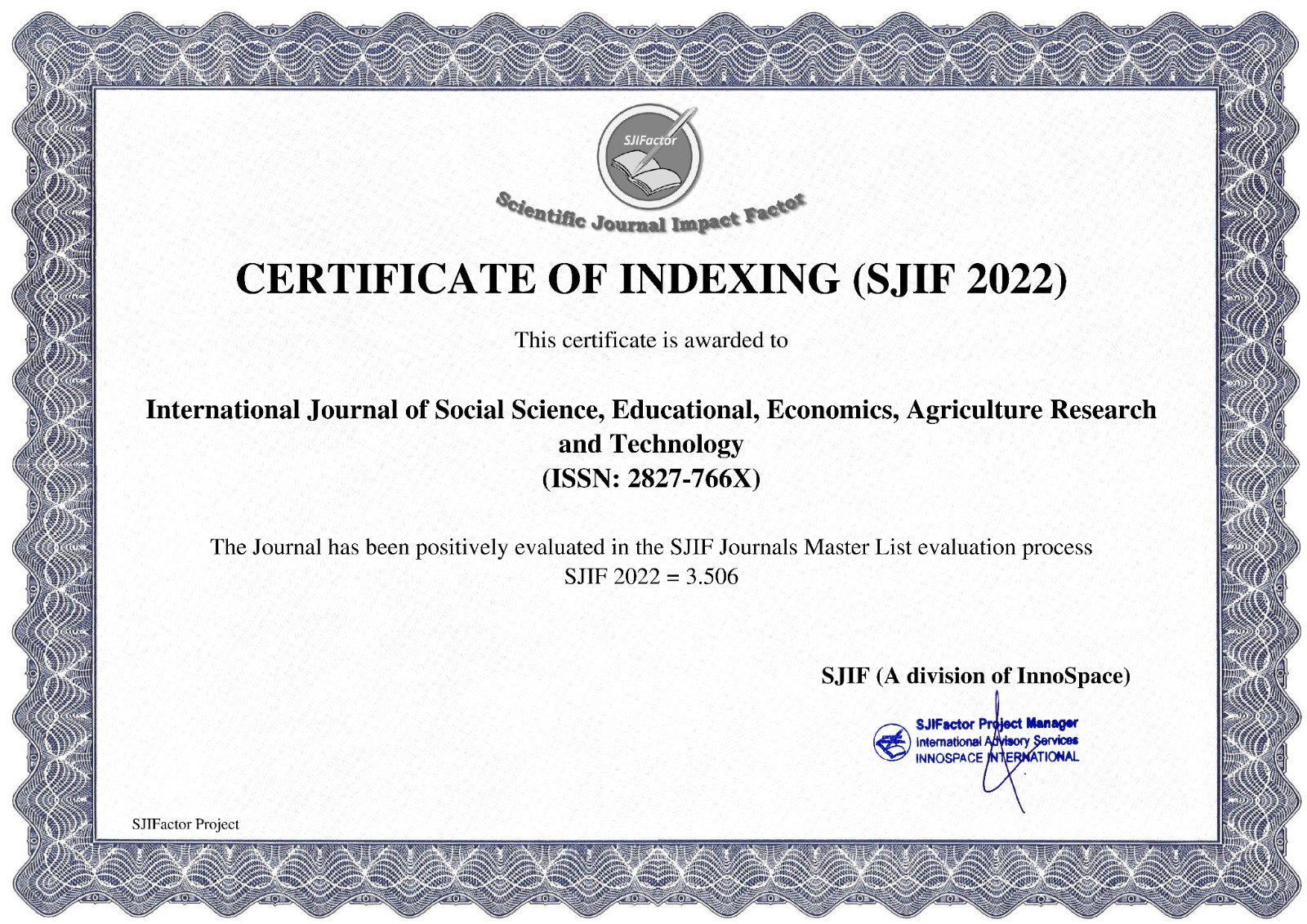TEACHING ISLAMIC STUDIES IN THE DIGITAL ERA: NAVIGATING OPPORTUNITIES AND CHALLENGES OF AI INTEGRATION IN EMERGING EDUCATIONAL CONTEXTS
Main Article Content
Habibullah Habibi
Habibullah Ahmadi
Fayaz Ghafoori
The integration of Artificial Intelligence (AI) in education is rapidly transforming teaching and learning processes worldwide. However, its adoption within Islamic Studies education remains limited and understudied, especially concerning theological accuracy and cultural appropriateness. This study aims to explore Islamic Studies educators’ awareness, usage, and perceptions of AI tools in teaching, alongside institutional support and future outlooks. Using a synthetic survey of 100 male educators from public and private universities, madrasahs, and online academies, data were collected on demographics, AI awareness, usage patterns, perceived opportunities, challenges, and ethical concerns. Quantitative analyses assessed mean ratings on familiarity, AI tool usage, and institutional readiness, supplemented by thematic summaries of open-ended responses. Results indicate moderate awareness of AI (mean = 3.2) but very low actual usage (mean = 2.0), with 50% of respondents never using AI tools. Educators recognize AI’s potential to improve access to Islamic knowledge and facilitate distance learning but express strong concerns regarding theological inaccuracies (mean = 4.6) and the erosion of spiritual teacher-student relationships (mean = 4.5). Institutional support and training were critically low. Despite reservations, 60% support AI integration under scholarly supervision, favoring a hybrid model balancing technology with traditional teaching. In conclusion, the study highlights a cautious yet optimistic stance towards AI in Islamic education, emphasizing the need for culturally grounded AI systems, enhanced educator training, and supportive policies to harness AI’s benefits while preserving religious integrity.
Adiyono, A., & Anshor, A. M. (2024). Islamic character education in the era of Industry 5.0: Navigating challenges and embracing opportunities. Al-Hayat: Journal of Islamic Education, 8(1), 287-304. https://doi.org/10.35723/ajie.v8i1.493
Ahmad, Z. A., Rohman, A. T. H., & Rini, D. K. (2025). The Role of Artificial Intelligence in Enhancing Pedagogical Methods in Modern Islamic Education. Journal of Hunan University Natural Sciences, 52(6). https://doi.org/10.55463/issn.1674-2974.52.6.9
Amiri, G. A., Hakimi, M., Rajaee, S. M. K., & Hussaini, M. F. (2024). Artificial Intelligence and Technological Evolution: A Comprehensive Analysis of Modern Challenges and Future Opportunities. Journal of Social Science Utilizing Technology, 2(3), 301-316. https://doi.org/10.70177/jssut.v2i3.1265
Arif, M., Irfan, S., Shaoan, M. M. R., & Ali, W. (2024). AI and machine learning in Islamic guidance: Opportunities, ethical considerations, and future directions. Guidance: Jurnal Bimbingan dan Konseling, 21(02), 429-451. https://doi.org/10.34005/guidance.v21i02.4449
Arifa, L. N. (2023, December). Islamic education in the digital age: Assessing the integration of ChatGPT in IRE learning. In Proceeding of International Conference on Islamic Education (ICIED) (Vol. 8, No. 1, pp. 320-329). https://conferences.uin-malang.ac.id/index.php/icied/article/view/2610
Elihami, E., Mas’ud, M. I., & Darmawan, A. (2024). Exploring the Landscape: challenges and opportunities in islamic education technology. Jurnal Pendidikan Progresif, 14(2), 1071-1092 https://doi.org/10.23960/jpp.v14.i2.202478
Fuchs, K. (2023). Exploring the opportunities and challenges of NLP models in higher education: Is ChatGPT a blessing or a curse? Frontiers in Education, 8. https://www.frontiersin.org/articles/10.3389/feduc.2023.1166682
Fui-Hoon Nah, F., Zheng, R., Cai, J., Siau, K., & Chen, L. (2023). Generative AI and ChatGPT: Applications, challenges, and AI-human collaboration. Journal of Information Technology Case and Application Research, 25(3), 277–304. https://doi.org/10.1080/15228053.2023.2233814
Hakimi, M., Zarinkhail, M. S., Ghafory, H., & Hamidi, S. A. (2024). Revolutionizing Technology Education with Artificial Intelligence and Machine Learning: A Comprehensive Systematic Literature Review. TIERS Information Technology Journal, 5(2), 94-110. https://doi.org/10.38043/tiers.v6i2.5640
Harry, A. (2023). Role of AI in education. Interdisciplinary Journal and Humanity (INJURITY), 2, 260–268. https://doi.org/10.58631/injurity.v2i3.52
Hasanah, N. A. (2024). Opportunities and Challenges for Islamic Education in Society 5.0. Islam Transformatif: Journal of Islamic Studies, 8(2), 264-281. https://doi.org/10.30983/it.v8i2.8650
Hidayat, A., Fatimah, S., & Rosidin, D. N. (2022). Challenges and prospects of Islamic education institutions and sustainability in the digital era. Nazhruna: Jurnal Pendidikan Islam, 5(2), 351–366. https://doi.org/10.31538/nzh.v5i2.2106
Ilma'Nun, L., Mohtarom, A., Marzuki, A., & Lawal, U. S. (2025). The Integration of Artificial Intelligence as a Teacher’s Partner in Islamic Religious Education Learning. Journal of Islamic Education Research, 6(2), 145-162. https://doi.org/10.35719/jier.v6i2.473
Kodri, M. N. A. (2022). Digital transformation in higher education: Challenges, opportunities and threats. Proceeding of Seminar on Language, Education, and Technology, 1, 9–20. https://doi.org/10.54895/let.v1i1.1535
Koivu, A. M., Hunter, P. J., Näsänen-Gilmore, P., Muthiani, Y., Isojärvi, J., Pörtfors, P., Ashorn, U., & Ashorn, P. (2021). Modular literature review: A novel systematic search and review method to support priority setting in health policy and practice. BMC Medical Research Methodology, 21(1), 268. https://doi.org/10.1186/s12874-021-01463-y
Laestadius, L., Bishop, A., Gonzalez, M., Illenčík, D., & Campos-Castillo, C. (2022). Too human and not human enough: A grounded theory analysis of mental health harms from emotional dependence on the social chatbot Replika. New Media & Society. https://doi.org/10.1177/14614448221142007
Ramli, M. (2024). Industrial Era Islamic Education Revolution 4.0: Strategy for Optimizing ICT Integration in Curriculum Education Study Programs. Jurnal Iqra': Kajian Ilmu Pendidikan, 9(2), 242-258. https://doi.org/10.25217/ji.v9i2.4525
Restalia, W., & Khasanah, N. (2024). Transformation of Islamic education in the digital age: Challenges and opportunities. Tadibia Islamika, 4(2), 85-92. https://doi.org/10.28918/tadibia.v4i2.8964
Shofiyyah, N. A., Komarudin, T. S., & Hasan, M. S. R. (2023). Innovations in Islamic Education Management within the University Context: addressing challenges and exploring future prospects. Nidhomul Haq: Jurnal Manajemen Pendidikan Islam, 8(2), 193-209. https://doi.org/10.31538/ndh.v8i2.3625
Sudestra, I. M. A., Agustini, N. W. E., Gunawan, I. M. A. O., Indrawan, G., & Hakimi, M. (2024). IMPROVING DIGITAL LEARNING: EVALUATING THE U LEARN LMS WITH THE SYSTEM USABILITY SCALE. JIPI (Jurnal Ilmiah Penelitian dan Pembelajaran Informatika), 9(4), 2325-2332. https://doi.org/10.29100/jipi.v9i4.6910
Wong-A-Foe, D. (2023, November). Navigating the Implications of AI in Indonesian Education: Tutors, Governance, and Ethical Perspectives. In International Conference on Data Science and Artificial Intelligence (pp. 349-360). Singapore: Springer Nature Singapore. https://doi.org/10.1007/978-981-99-7969-1_2






















